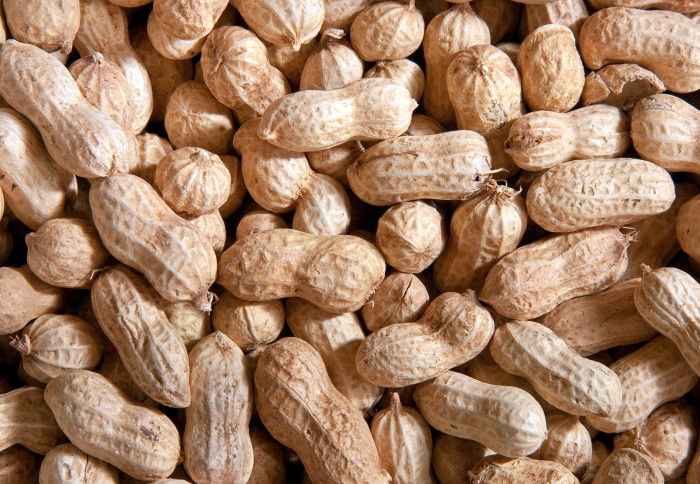Earlier introduction of allergenic foods in children may prevent food allergies

Researchers found evidence that earlier introduction of multiple allergy foods can prevent food allergies developing in children.
Researchers at Imperial College London's National Heart and Lung Institute conducted a review of clinical trial findings to understand whether earlier introduction of common allergy foods such as egg, peanut and cow’s milk can prevent food allergy from developing in young children. They found evidence that earlier introduction of multiple allergy foods can prevent ‘any food allergy’, but families also found it difficult to introduce multiple allergy foods early to young infants. This study adds to previous findings that earlier introduction of egg and peanut to infant diets can reduce infants’ risk for developing allergy to these foods in the first years of life, and suggests that more work is needed to find acceptable ways of introducing multiple common allergy foods to infant diets for food allergy prevention.
"We were pleased to find that when all published studies are combined in analysis, there is now quite strong evidence that food allergy can be prevented by introducing multiple allergy foods during early infancy." Dr Roberta Scarpone School of Public Health
Food allergy affects children and their families by restricting dietary choices and social activities and causing unpleasant and unpredictable allergic reactions which can be life-threatening in rare cases. Food allergy incidence varies between populations, and awareness and concern about food allergy has increased in recent decades. Previous work indicated that earlier introduction of egg could prevent egg allergy and earlier introduction of peanut could prevent peanut allergy, but these effects were allergen-specific. Prior to this study, it was unclear whether prevention of ‘any food allergy’ using earlier introduction of multiple allergy foods would be possible.
This study led by Dr Roberta Scarpone, from Imperial's School of Public Health, and Dr Robert Boyle, from the National Heart & Lung Institute, searched a total of 9283 titles to find relevant studies for inclusion, with 23 studies reported in 56 reports included in the review. Twenty-one studies (91%) were conducted in high-income countries. The systematic review found evidence that earlier introduction of multiple allergenic foods is associated with reduced IgE-mediated allergy to any food. Children with this type of food allergy will react quickly, it is a response to an allergen-specific immunoglobulin E (IgE) antibody that is present in the blood stream that leads to the allergic response.
Dr Scarpone said: "We were pleased to find that when all published studies are combined in analysis, there is now quite strong evidence that food allergy can be prevented by introducing multiple allergy foods during early infancy."
Next steps
These findings strengthen support for the idea of using earlier allergenic food introduction to prevent food allergy, but highlight the need for more acceptable forms of multiple allergenic foods. In general, to prevent one infant from developing food allergy nearly 40 families would need to take on the introduction of multiple allergenic foods. It is therefore important to establish safety, cost effectiveness and acceptability of earlier multiple allergenic food introduction.
Dr Boyle said: "This study strengthens the evidence that earlier introduction of allergy foods to an infant diet can prevent food allergy. However, it also highlights the difficulties that families face in doing this, and the disconnect between the interventions being tested in clinical trials and World Health Organization infant and young child feeding guidance".
"This study strengthens the evidence that earlier introduction of allergy foods to an infant diet can prevent food allergy. However, it also highlights the difficulties that families face in doing this..." Dr Robert Boyle National Heart & Lung Institute
The researchers found that earlier allergenic food introduction was associated with high rates of withdrawal from the intervention in two large trials. Only 29% and 34% of participants in the earlier introduction groups of these trials were able to complete the process. However smaller studies of multiple allergenic food introduction had much lower rates of withdrawal. These smaller studies used protein powders rather than a stepwise introduction of normal foods. There is however wider public health concern about the nutritional composition, texture, flavour and marketing of commercial foods for infants. The researchers outline that these wider issues need to be considered before making recommendations to use commercial multiple allergenic food protein powders for food allergy prevention. In the clinical trials reviewed, most complementary feeding interventions were initiated before 6 months, which is against World Health Organization infant feeding guidance that complementary foods are introduced to a baby’s diet at 6 months.
Read the full article “Timing of allergenic food introduction and risk of IgE-mediated food allergy: systematic review and meta-analysis” in JAMA.
Article text (excluding photos or graphics) © Imperial College London.
Photos and graphics subject to third party copyright used with permission or © Imperial College London.
Reporter
Ms Helen Johnson
Communications Division